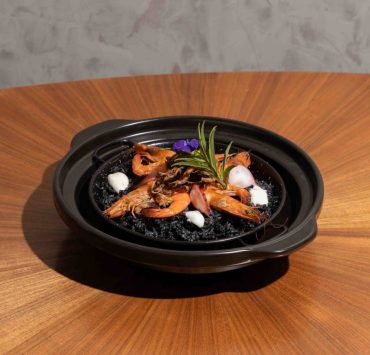Beyond diplomacy on WPS issue
Over the weekend, China again unleashed its military ships against Philippine vessels, including the civilian-led Christmas convoy that was bringing supplies and presents to fishermen and Filipino troops in the West Philippine Sea (WPS). Though expected, the provocative and dangerous maneuvers represent a new low even by China’s record of gutter tactics.
On Saturday, at the Bajo de Masinloc in Zambales, the China Coast Guard (CCG) fired water cannons at several Bureau of Fisheries and Aquatic Resources boats sailing for Scarborough Shoal to distribute fuel and groceries to fisherfolk in the area.
The following morning, the CCG again trained water cannons on Philippine ships doing routine resupply and rotation mission to the troops stationed at the grounded BRP Sierra Madre on Ayungin Shoal. The force of the water damaged the navigation equipment, railing, and mast of several Philippine vessels while endangering the lives of their crew, including that of Armed Forces chief of staff Gen. Romeo Brawner Jr. who was on board. Commodore Jay Tarriela, Philippine Coast Guard (PCG) spokesperson for the WPS, said 46 Chinese vessels were in the vicinity of the Shoal on Sunday, “the largest number of maritime forces that we have documented so far in the previous months.”
China’s de facto controlChina’s belligerent tactics that include the ruthless use of military-grade lasers and water cannons on Philippine ships are nothing new, but have become more frequent and indiscriminate of late. Given its disregard of hundreds of diplomatic protests and its doublespeak at ministerial talks, China’s message becomes clear and unmistakable: It now has de facto control of the country’s exclusive economic zone (EEZ), and has effectively shut out the Philippines from its own territorial waters.
Appeasement, the official policy of the previous administration, has apparently failed, with former president Rodrigo Duterte’s groveling and defeatist stance only emboldening China. Diplomacy, it seems, can take us only so far, as even President Marcos has acknowledged that finding mechanisms to lower tensions in the South China Sea (SCS) remains “a work in progress” despite talks with Chinese President Xi Jinping on the sidelines of the Asia-Pacific Economic Cooperation summit in San Francisco last month. Respect for the rule of law seems an alien concept for China as well, as it has blatantly ignored the 2016 arbitral ruling that favored the Philippines’ claims over disputed islands and features in the WPS.
Maintaining our moral high groundIs it time then for the government to take a stronger, more direct, and confrontational approach to China’s reckless trampling of Philippine sovereignty? Should we, as Sen. Ronald “Bato” dela Rosa has suggested, up the ante and return fire or, in his words, “water with water”?
While acknowledging that PCG ships have their own water cannons, Tarriela cautioned that such show of force might escalate an already volatile situation. “We don’t need to go down to the level of the Chinese coast guard,” he said. “We choose to maintain our moral high ground,” he added.
What then is the middle ground that would work for us? How do we stand up to such disrespect to our sovereignty, maintain our dignity, and uphold the rule of law in these parts, without risking a war that could severely test the limits of our military might?
Stronger optionsAside from maintaining joint patrols of the disputed waters with our allies from the United States, Japan, and Australia, lawmakers and experts on the WPS issue have ventured several suggestions that are worth exploring, among them recalling our ambassador to Beijing Jaime FlorCruz. At this point, this seems to be the more pragmatic move for the Philippines rather than expelling China’s ambassador to the Philippines Huang Xilian as suggested by some senators.
Others suggested resorting to air transport to deliver supplies to Ayungin Shoal to avoid China’s maritime militia, and using “those fighter jets that we got from South Korea … [to patrol] the West Philippine Sea.” The government must also consider suggestions to build civilian structures on our islands and reefs in our EEZ, in order to exercise our rights as upheld by the international tribunal.
How about economic sanctions, maritime law expert, professor Jay Batongbacal said, adding that government can annul existing Chinese business operations in the country, including the joint oil and gas exploration deal in the SCS and shut down the Philippine offshore gaming operators. As for our export of raw materials and resources to China, we can always look for other markets, he added.
At this point when default diplomacy has proven futile, it’s high time for the government to consider other stronger options “to defend and protect our nation’s sovereignty, sovereign rights, and jurisdiction in the West Philippine Sea,” as Mr. Marcos himself has vowed.
















